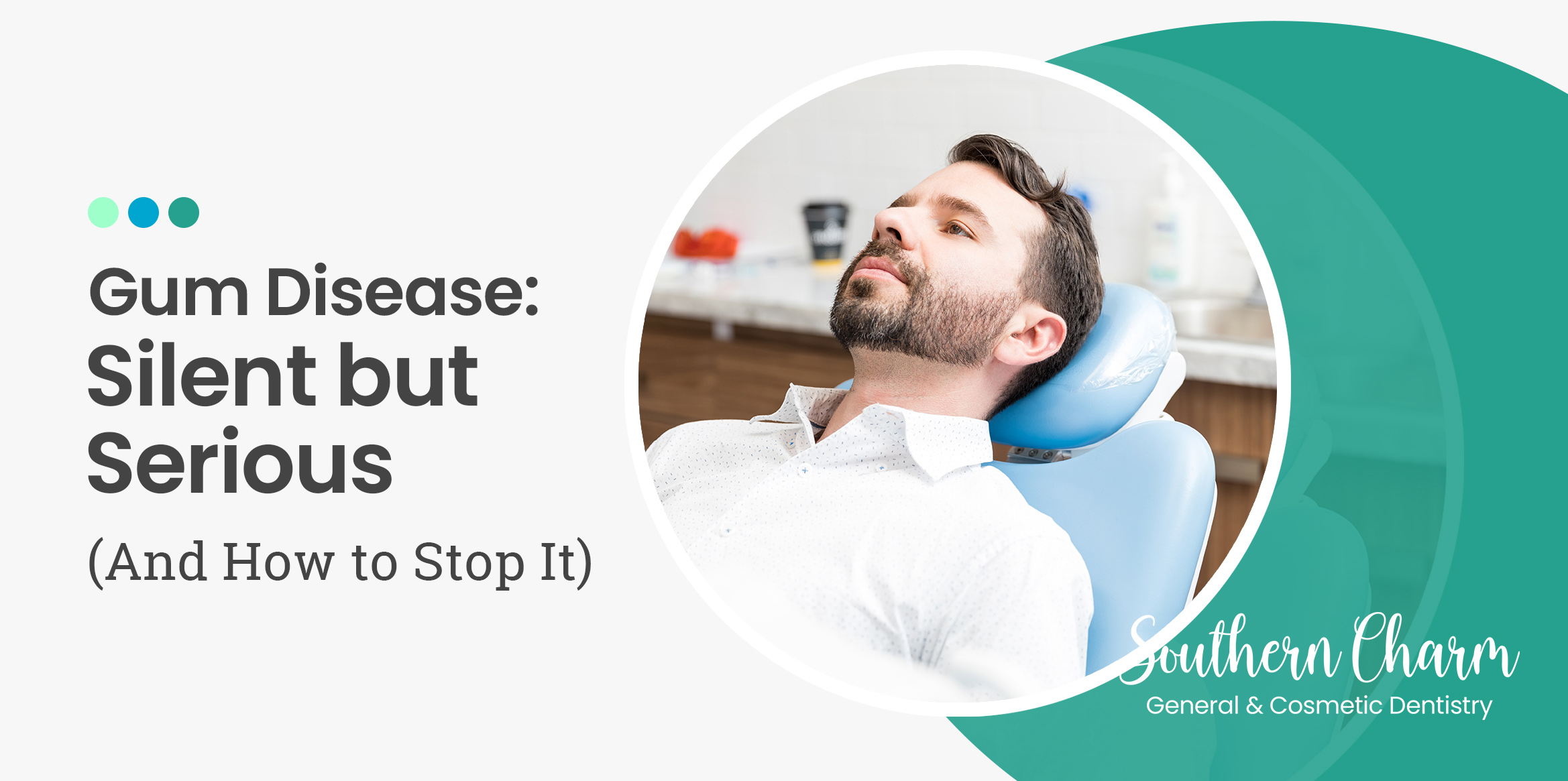Gum Disease: Silent but Serious (And How to Stop It)
When people think about dental problems, cavities usually steal the spotlight. But gum disease is often the real troublemaker. The problem is, it doesn’t usually come with pain—at least not at first. It starts quietly, sometimes with a little bleeding when you brush or floss. Maybe your gums look a bit puffy. Nothing major, right?
That’s how it gets overlooked.
The Difference Between Gingivitis and Periodontitis
In its early form, gum disease is called gingivitis. It’s mild, reversible, and pretty common. With a professional cleaning and better brushing and flossing at home, most people can turn things around.
But when it progresses to periodontitis, things get more serious. The infection moves deeper, damaging the bone that holds your teeth in place. Teeth can loosen, shift, or even fall out. And the worst part? It can all happen with little or no pain.
It’s About More Than Just Your Mouth
Gum disease doesn’t stay put. Studies have linked it to heart disease, stroke, diabetes, and even pregnancy complications. When bacteria from your gums enter your bloodstream, they can spark inflammation throughout your body. So yes, healthy gums really do matter beyond the dental chair.
Signs You Shouldn’t Ignore
Bleeding gums. Persistent bad breath. Gums pulling back from your teeth. A change in your bite. These symptoms may not scream “emergency,” but they’re your body’s way of waving a red flag. Don’t wait until it hurts—because by then, the damage might already be done.
What You Can Do About It
The best way to stop gum disease is with consistency. Daily brushing and flossing are essential, but so are regular dental visits. At your checkups, we’re looking for signs you might miss and giving your teeth and gums the kind of deep clean you just can’t do at home.
If we catch gum disease early, we can often reverse it. If it’s more advanced, there are still treatments available—from scaling and root planing to more advanced periodontal therapy. The key is catching it before it spreads.
Final Thoughts
Gum disease might be silent, but it’s not invisible. Paying attention to your gums—and not just your teeth—can protect your health in ways you might not expect. If it’s been a while since your last cleaning, or if you’ve noticed anything unusual with your gums, don’t wait. The sooner we catch it, the better the outcome.
Because when it comes to gum disease, what you don’t feel can hurt you.




